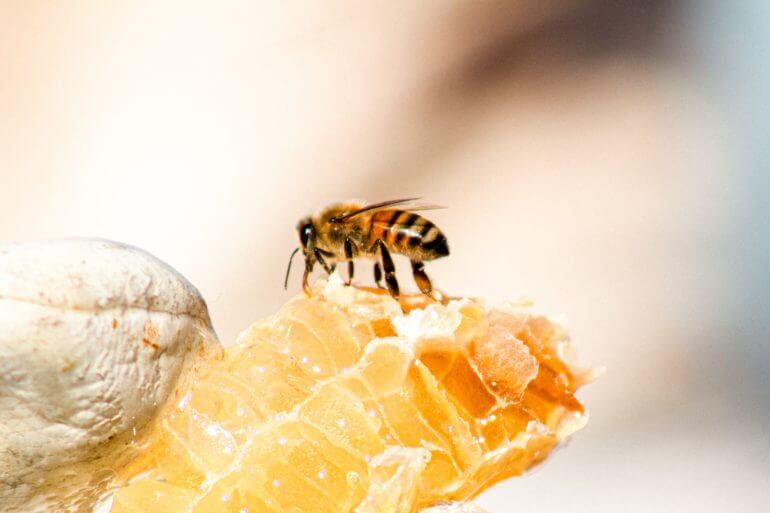
Why Is Honey Kosher If Bees Are Not?
Dear Jew in the City,
Why is honey kosher if bees are not?
Sincerely,
Ryan
Dear Ryan,
Thanks for your question. It’s an excellent question, but I’m going to explain it for those who may not know why it’s excellent.
There’s a general rule in kashrus that the products of non-kosher animals are likewise non-kosher. Pig milk? Non-kosher. Owl eggs? Non-kosher. Given this principle, one would expect that honey – which comes from bees – should also be non-kosher. So why is it kosher?
The Talmud in Bechoros (7b) asks your question. They answer that bees don’t make honey the same way that animals make milk or eggs, i.e., it’s not a product of their bodies. Rather, they make honey the way that you or I might make bread or a cake, i.e., by taking the necessary ingredients and processing them.
Honey is made from flower nectar, which is kosher. Bees don’t digest the nectar, they just mix it with saliva and store it in their honey sacs. In the hive, the bee regurgitates the honey, where it’s sealed in the honeycombs. Bees don’t secrete honey; you can squeeze bees all day long and you won’t get a drop. (Note: Don’t squeeze bees all day long.)
There is a second opinion in the gemara that honey is permitted because of an inference from Leviticus 11:20: we may not eat non-kosher winged insects but we may eat the product of a non-kosher winged insect, specifically bee honey. This dissenting position only disagrees as to why honey is kosher; no one disagrees that honey is kosher.
Royal jelly is different. Royal jelly is a secretion from glands in the bee. Unlike honey, royal jelly is a real product of the bee, and is therefore generally considered to be unkosher. One must also be careful of unfiltered honey that contains bee parts, which are not kosher. Honey could also be sold with non-kosher additives. It is therefore advisable to look for honey with appropriate kosher supervision.
One might infer that honey is kosher from the fact that Torah repeatedly refers to the land of Israel as “a land flowing with milk and honey.” Actually, that refers to date honey, not bee honey. (And “milk” may refer to white wine, though that’s a discussion for another day.) There are, however, a number of verses that refer to bee honey:
- The manna that the Jews ate for 40 years in the wilderness tasted like “wafers made with honey” (Exodus 16:31);
- Shimshon (Samson) wasn’t a circus strongman; he was a leader of the nation. He ate honey from a hive he found built in a lion’s carcass, which he then used as the basis for a riddle (Judges 14);
- In Shir HaShirim (4:11), we are told that “honey and milk are under your tongue.” This is understood as a metaphor for words of Torah, and is the source of the custom to eat honey and dairy products on Shavuos (though the custom to eat dairy has almost completely subsumed the practice of eating honey).
It would truly be bizarre if the Torah were to compare the taste of manna to something unkosher, to highlight a leader of the people eating treif without comment, or to use something non-kosher as a praise and a metaphor for Torah itself. While these aren’t sources for the kashrus of honey, they certainly take its kosher status for granted.
Sincerely,
Rabbi Jack Abramowitz, JITC Educational Correspondent
Follow Ask Rabbi Jack on YouTube
If you found this content meaningful and want to help further our mission through our Keter, Makom, and Tikun branches, please consider becoming a Change Maker today.







